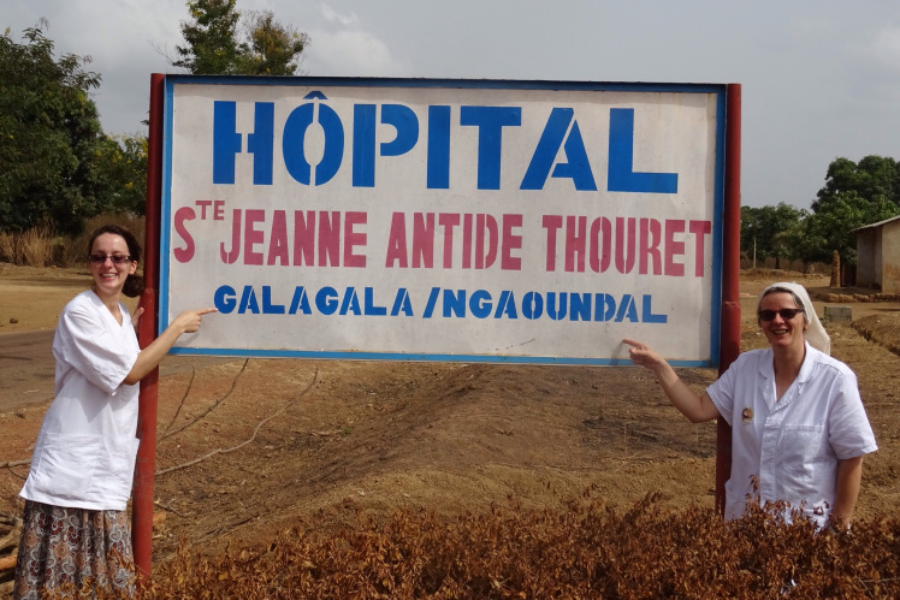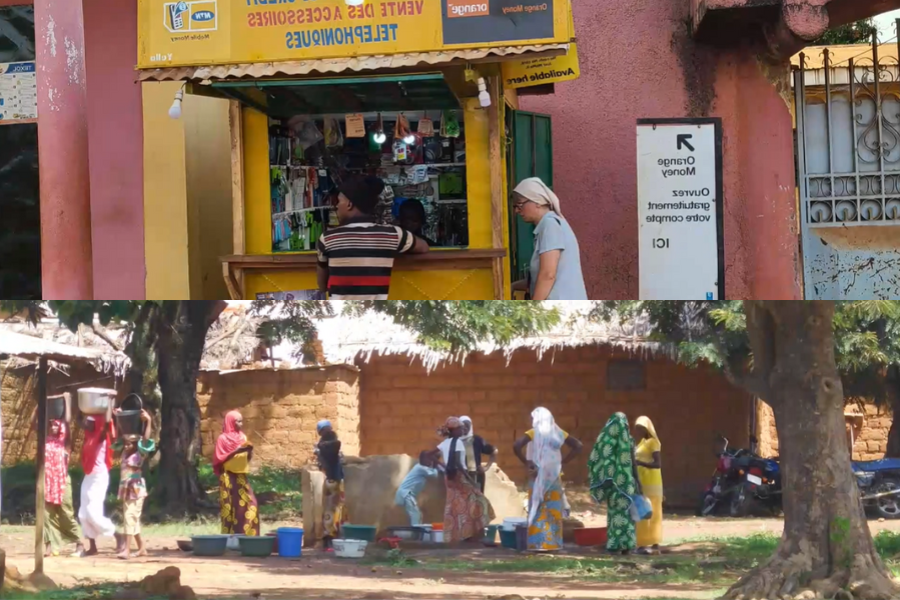In Ngoundal, Sister Cécile and the other Sisters of Charity who work as nurses at the Saint Jeanne-Antide hospital strive every day to embody the charisma received from Mother Thouret:

“I am Sister Allarene Cécile, of the Sisters of Charity of Saint Jeanne-Antide Thouret. Native of Chad, I am on mission in Cameroon, in Ngoundal, in the centre of this vast country.
I am a nurse and I work at the St Jeanne Antide Thouret hospital.
Today, 11 February, the Catholic Church celebrates the 33rd World Day of the Sick, a day dedicated to suffering people throughout the world, their loved ones and all those who care for them with dedication and compassion.
The Sisters of Charity, in various territories, through the charism that Mother Thouret received from God and which she bequeathed to them, namely to love Jesus Christ, to love and serve the poor who are these suffering members, try to be close to all suffering people of different categories: the elderly, children, pregnant women, and all those suffering from different kinds of illness.


The Sisters of Charity try to give them the will to live, to bring them relief in their suffering and they are close to these people by living their charism, they dedicate themselves to making all those who suffer happy, they bring them joy, peace, courage, patience and hope.
We want to thank the Lord for all the Sisters of Charity who live and put this charism into practice with all these people in this Jubilee Year so that they can be even closer to those who are desperate about life, so that they can rediscover the will to live throughout the world. We wish a happy feast day to all the sick people in our hospitals, our health centres and throughout the world”.
Sister Allarene Cécile

Opened in 2016 by the Sisters of Charity of St Jeanne-Antide Thouret, the hospital is a health reference point for around 95,000 people, regardless of race, ethnicity or religion, specialising in particular in the fight against tuberculosis, which is very prevalent here. The most widespread and recurrent disease is malaria, but there are also many respiratory diseases and an increasing number of cases of tuberculosis. Another major problem is malnutrition. Some children arrive with oedemas, a sign of a lack of protein intake, due to the extreme poverty of families in this region of the world, but also, in some cases, to polygamy, which is not uncommon here, as the population is predominantly Muslim.








